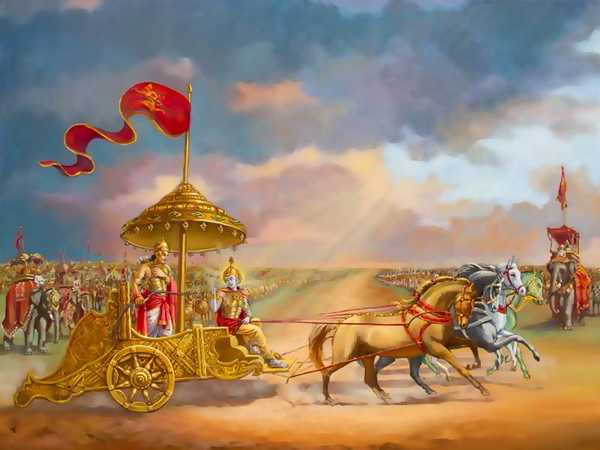Chapter 49

“Kripa said, ‘O Radheya, thy crooked heart always inclineth to war. Thouknowest not the true nature of things; nor dost thou take into accounttheir after-consequences. There are various kinds of expedientsinferrable from the scriptures. Of these, a battle hath been regarded bythose acquainted with the past, as the most sinful. It is only when timeand place are favourable that military operations can lead to success. Inthe present instance, however, the time being unfavourable, no goodresults will be deprived. A display of prowess in proper time and placebecometh beneficial. It is by the favourableness or otherwise (of timeand place) that the opportuneness of an act is determined. Learned mencan never act according to the ideas of a car-maker. Considering allthis, an encounter with Partha is not advisible for us. Alone he savedthe Kurus (from the Gandharvas), and alone he satiated Agni. Alone he ledthe life of a Brahmacharin for five years (on the breast of Himavat).Taking up Subhadra on his car, alone he challenged Krishna to singlecombat. Alone he fought with Rudra who stood before him as a forester. Itwas in this very forest that Partha rescued Krishna while she was beingtaken away (by Jayadratha). It is he alone that hath, for five years,studied the science of weapons under Indra. Alone vanquishing all foes hehath spread the fame of the Kurus. Alone that chastiser of foesvanquished in battle Chitrasena, the king of the Gandharvas and in amoment his invincible troops also. Alone he overthrew in battle thefierce Nivatakavachas and the Kalakhanchas, that were both incapable ofbeing slain by the gods themselves. What, however, O Kama, hath beenachieved by thee single-handed like any of the sons of Pandu, each ofwhom had alone subjugated many lords of earth? Even Indra himself isunfit to encounter Partha in battle. He, therefore, that desireth tofight with Arjuna should take a sedative. As to thyself, thou desirest totake out the fangs of an angry snake of virulent poison by stretchingforth thy right hand and extending thy forefinger. Or, wandering alone inthe forest thou desirest to ride an infuriate elephant and go to a boarwithout a hook in hand. Or, rubbed over with clarified butter and dressedin silken robes, thou desirest to pass through the midst of a blazingfire fed with fat and tallow and clarified butter. Who is there thatwould, binding his own hands and feet and tying a huge stone unto hisneck, cross the ocean swimming with his bare arms? What manliness isthere in such an act? O Kama, he is a fool that would, without, skill inweapons and without strength, desire to fight with Partha who is somighty and skilled in weapons? Dishonestly deceived by us and liberatedfrom thirteen years’ exile, will not the illustrious hero annihilate us?Having ignorantly come to a place where Partha lay concealed like firehidden in a well, we have, indeed, exposed to a great danger. Butirresistible though he be in battle, we should fight against him. Let,therefore, our troops, clad in mail, stand here arrayed in ranks andready to strike. Let Drona and Duryodhana and Bhishma and thyself andDrona’s son and ourselves, all fight with the son of Pritha. Do not OKama, act so rashly as to fight alone. If we six car-warriors be united,we can then be a match for and fight with that son of Pritha who isresolved to fight and who is as fierce as the wielder of the thunderbolt.Aided by our troops arrayed in ranks, ourselves–great bowmen–standingcarefully will fight with Arjuna even as the Danavas encounter Vasava inbattle.'”




